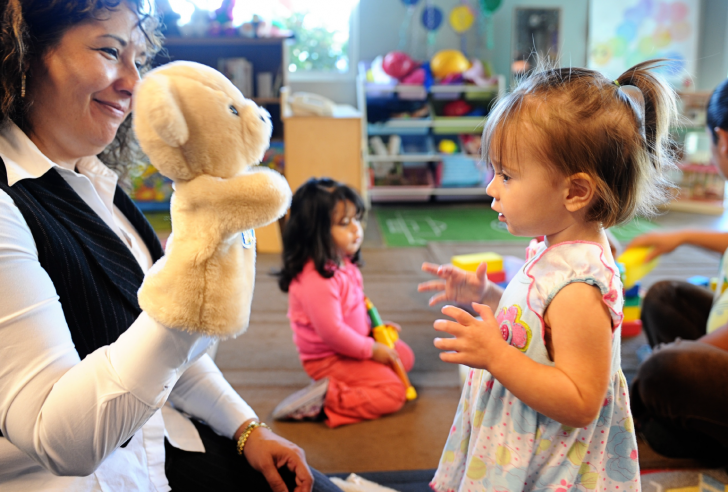AAP: Early education, quality child care of ‘strategic priority’
 Early education and quality child care should be promoted by pediatricians, including within the medical home as well as the within local, state and national settings, according to a recent policy statement issued by the AAP.
Early education and quality child care should be promoted by pediatricians, including within the medical home as well as the within local, state and national settings, according to a recent policy statement issued by the AAP.
According to the report, the AAP has made early brain and child development a “strategic priority.”
“At present, more than half of children less than 5 years old regularly attend some type of out-of-home child care or early education program, and their experiences in these settings will affect their future lives,” Elaine A. Donoghue, MD, FAAP, from the department of pediatrics at Lehigh Valley Health Network and the department of pediatrics at Morsani College of Medicine at the University of South Florida, wrote. “For many families, high-quality child care is not available or affordable.”
To highlight the significance of quality child care in a child’s formative years, as well as to outline the steps that pediatricians can take to ensure that their patients are receiving quality care, Donoghue analyzed current barriers families may face, steps to improve early childhood education and recommendations for pediatricians.
Quality child care is not available in all communities, partially due to insufficient funding and staff education, as well as varying regulation and enforcement. Health consultants are also not easily accessed by many of these sites because funding and budget restrictions may interfere. Because younger children may not be able to fully express their symptoms and are more prone to infectious disease, these positions are greatly needed.
Although state licensing has become a standard in child care, various organizations offer voluntary systems of accreditation that tend to be more thorough. These organizations include the AAP, the American Public Health Association and the National Association for the Education of Young Children. These can positively affect the quality of education for children in these environments.
Donoghue notes that through quality rating and improvement systems, which are enforced in over 75% of the country, incentives such as staff scholarships, tiered reimbursement for child care subsidies and technical assistance and/or professional development are available to help provide more quality education. Additionally, the access to health consultation in the child care setting may also protect the health and safety of these children.
The researcher recommends that pediatricians take the following actions:
- Ask families what care arrangements have been made for their children and educate about the importance of quality care.
- Become educated about high-quality child care through resources provided by the AAP.
- Be a medical home by participating in the three-way collaboration with families and education professionals. Detailed care plans written in lay language assist in collaboration. Medical team-based or time-based coding and billing may provide support for these efforts.
- Advise families and early educators when children are having behavioral problems in their care and are at risk for expulsion. Explain triggers for behavior problems and recommend behavioral health resources as needed.
Donoghue also notes many actions pediatricians can take on community, state and national levels, including:
- Discuss the importance of safe sleep, immunization, safe medication administration, infection control, healthy diet and physical activity, oral health, medical home access and other health topics with local child care centers.
- Become a child care health consultant or support your local child care health consultant nurses.
- Educate policy makers about the science that supports the benefits of quality early child care and education and, conversely, the lost opportunities and setbacks that result from poor quality care
- Close the gaps between state regulations and the quality standards outlined by encouraging strong state regulation and enforcement.
- Support a quality rating and improvement system in your state if one is being implemented, and encourage robust child health and safety standards.
- Advocate for improved funding for child care health consultation.
Disclosure: The researcher provides no relevant financial disclosures.
By: Donaghue EA, et al.
Source: https://www.healio.com/









